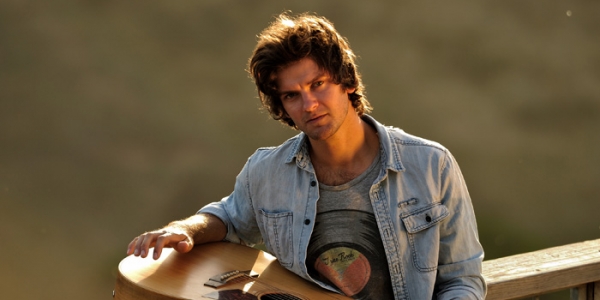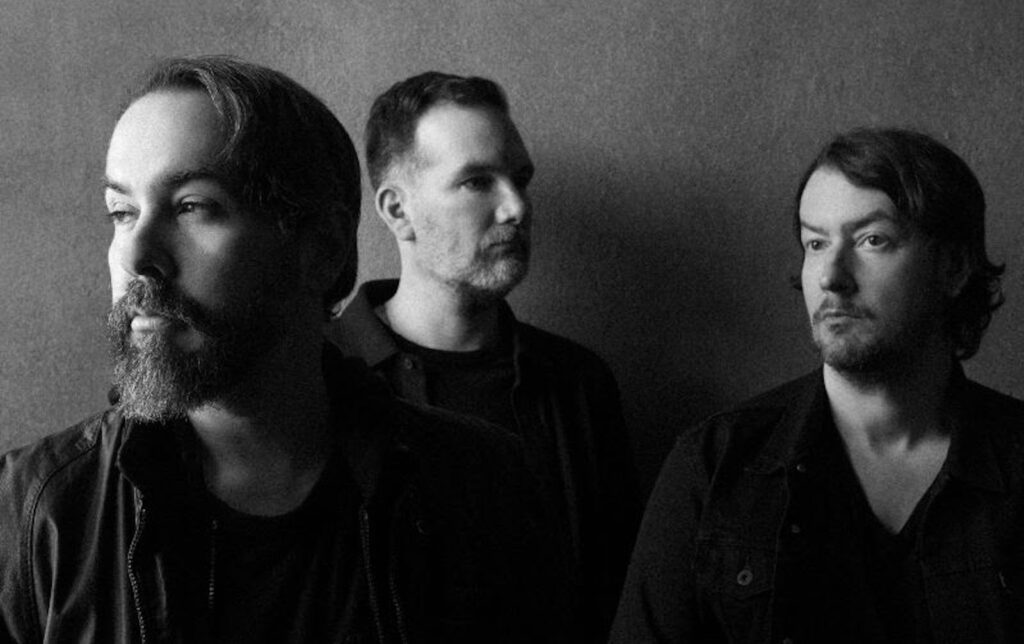Fans can expect a few familiar Maximo Park hallmarks to feature throughout the new record. According to Smith, the band’s expertise not only remains intact, but honed, even, in the name of The National Health. “We wanted to make a record that was very direct. Every record is a response to the last one. You look back at the other things that you’ve done and you try and make something that shows you’ve learned from your mistakes, that showcases your strengths,” he muses. “To be direct and to be full of hooks and kind of positive – that’s what we believe the band to be. We have to question, ‘What is Maximo Park? What are we doing?’ One of the things that rang true is that we make pop music. That’s one of the things we do when we’re together. Outside of that, we all have quite different tastes and interests, but when we’re together, that’s one of the things that happens.”
Evenings with the wireless proved a huge catalyst in Smith’s musical awakening, his adolescence an exploration of pop music’s splendours. “I’ve always been really bewitched by the power of pop music – hearing a song on the radio for three minutes, whether it’s daytime radio or a more specialist show that’s on an evening. I used to spend my evenings after doing my homework or whatever listening to the radio, becoming obsessed with bands like Stereolab or Tindersticks or Cocteau Twins… stuff that was coming through on the late night radio wave. It did change my life and it made my life better and improved my life when I was listening to these songs,” he recalls. “Even something like The Smiths… I first heard The Smiths on daytime radio and I thought, ‘Wow, this doesn’t sound like Duran Duran! This is a bit different to Bon Jovi!’ This doesn’t mean that they’re not good, either.”
“You learn that there’s an alternative pop universe. You go back and listen to Big Star and, further back, you hear these trashy rock’n’roll songs and you become obsessed with this idea of thinking about life in three minutes and revealing something new about the same old emotions we’ve been having for centuries and centuries.”
Smith himself has carved a career out of a superb lyrical prowess, the frontman a gifted wordsmith. His penchant for the personal, too, resonates throughout Maximo Park’s catalogue at large, his approach adored by fans. According to Smith, it was after an extensive bout of trial and error that he found his niche as a writer. “I wrote so many different kinds of songs and the only ones that made sense to me and felt real and honest were the ones that kind of reflected the turmoil in my own life – the kind of daily turmoil you feel when you’re just living your life, things that I suppose everybody goes through. Even though at the start I’d thought I’d write ‘confessional’ songs, I realised that they weren’t that confessional. I see people singing along with Going Missing that in their masses on a nightly basis. I still think, ‘How did that happen?!’ It can only be because people go through the same things.”
The National Health sees Smith broaden his horizons, the title track in particular drawing upon both a personal and political unease. “The narrator [in the song] goes down to the council and gets into a bit of a tizz,” Smith chuckles, scratching the surface of the song’s concerns. “It’s semi-humorous, but that kind of happens all the time, where you’re in an institution and you’re feeling really frustrated with the powers that be and the way that people act in places like that. You could be in the job centre or whatever and you’re thinking, ‘I’m not scum and yet you treat me like scum!’. I’ve experienced that plenty of times in my life, enough to put that frustration into a song. It becomes about a broader thing, especially in the times that we live in, in our country. But the first line is, ‘England is ill and it is not alone’. It’s about other places. Western democracy and its economic models are being questioned for the first time in a long time.”
Smith expounds upon the album’s general direction, casting The National Health as optimistic against the odds. “I think that the record for me is about light at the end of the tunnel and being positive in the face of negative things that happen on a daily basis.”
The all-too-brief interview comes to a close, the last-gasp matter of another Australian tour inevitably surfacing. In spite of an apparent gagging order, Smith does his best to let the tiniest of tidbits slip. “I’m absolutely not allowed to talk about it,” he laments, “but we would like to come back and there are plans afoot.”
BY NICK MASON







